Walking on the West Bank
Robert Macfarlane
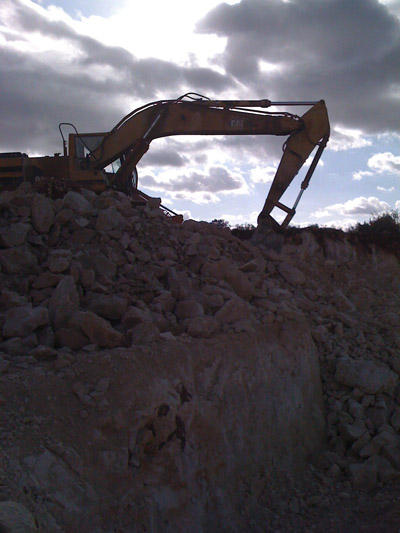
Image 1 of 8
Since 1967, the open landscape around Ramallah and throughout the West Bank has increased in fragility and diminished in size.
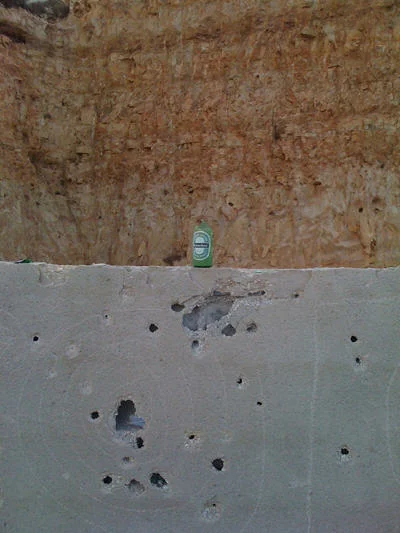
Image 2 of 8
We leave on foot from Raja’s house, walking out and down into Wadi’qda. Almost immediately, a bad omen. A thin breeze-block wall, plastered with cement, has been turned into a firing range. Militants or policemen have been practising their aim here, just beyond the town’s boundaries.
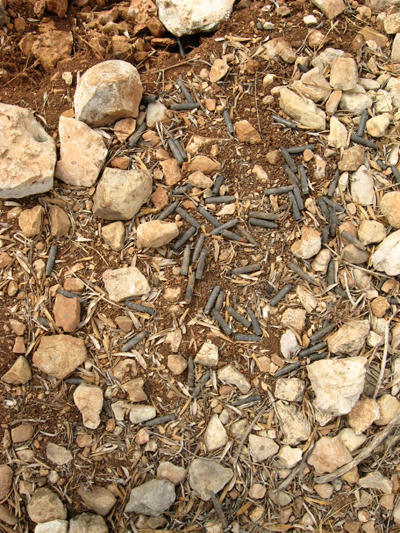
Image 3 of 8
Further down the wadi, at the base of an olive tree growing in a wide terrace, we find a scatter of big bullet casings. They resemble the spoor of a creature: AK-47 droppings.
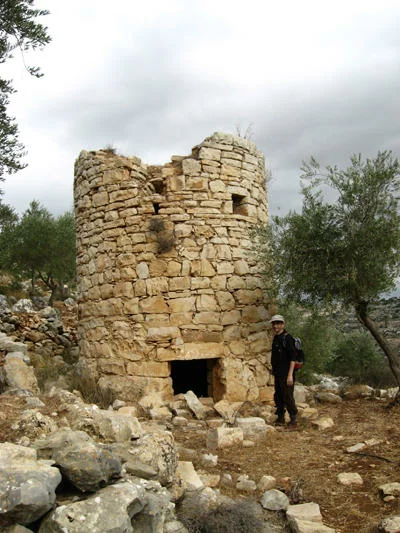
Image 4 of 8
Later, we come to a stone tower made out of limestone tanned by marl. This is a qasr, used as a base by farmers and shepherds. They dot the hills; most are dilapidated.

Image 5 of 8
I drop to my hands and knees and crawl in through the narrow doorway. Raja comes in after me. His voice is echoey in the cool space. The windows of the qasr have been barred with barbed wire.

Image 6 of 8
As we walk the wadi path beyond the qasr, along an obviously old path, Raja begins to tell me stories: about the people he has brought here, and what the experience of the landscape has done to them. He speaks about the different seasons of colour in the valley.
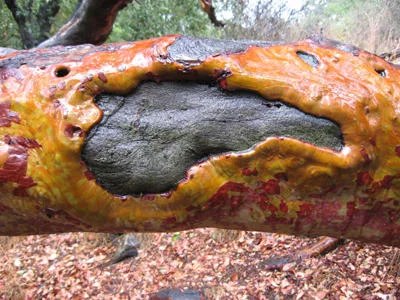
Image 7 of 8
Much later, a rainstorm breaks. We run for cover to what we think is an abandoned villa on the hillside. Until 1967, the villa belonged to the Zalatimo family, well-known in Palestine as pastry-makers; after the Occupation, they were forced to leave. Outside the villa is a vast laurel tree, whose glossy bark resembles red gold.
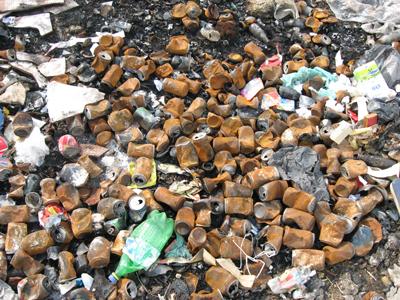
Image 8 of 8
Looking out from the villa, I see the Dolev settlement away to the west, and the village with its trash slews spilling from its lower edges.
In an essay for our ‘Aliens’ issue, Robert Macfarlane tells of walking in Palestine with his friend, the writer and lawyer Raja Shehadeh. Shehadeh has been conducting sarha in the hills of Ramallah, on the West Bank, for more than forty years. As Macfarlane explains, sarha originally meant ‘to let the cattle out to pasture to graze’, but the word has been humanized to suggest the action of a walker who roams without a fixed plan. ‘Wander’, he says, is the closest equivalent in English: ‘a word shadowed by wonder’.
Wandering is increasingly difficult in Ramallah as the open landscape gives way to city sprawl, Israeli army posts and Palestinian militia bases. ‘But Raja still walks,’ Macfarlane writes. ‘As walking becomes less easy, it has become correspondingly more important.’
This series of photos, exclusive to our website, presents a few striking moments from Macfarlane and Shehadeh’s sarha.
Robert Macfarlane
Robert Macfarlane was born in Nottinghamshire in 1976. He is the author of Mountains of the Mind, The Wild Places, The Old Ways and Landmarks. Mountains of the Mind won the Guardian First Book Award, the Somerset Maugham Award and the Sunday Times Young Writer of the Year Award. The Wild Places won the Boardman-Tasker Award and the Sundial Scottish Arts Council Non-fiction Award. He is a Fellow of Emmanuel College, Cambridge, and writes on environmentalism, literature and travel for publications including the Guardian, the Sunday Times and The New York Times.
More about the author →More on Granta.com
In Conversation
Robert Macfarlane & Adam Scovell
‘Travelling into the Ness for the first time was exactly like Andrei Tarkovsky’s Stalker’
Robert Macfarlane in conversation with Adam Scovell.
Robert Macfarlane | Is Travel Writing Dead?
Robert Macfarlane
‘The best writers rose to the challenge by seeking not originality of destination, but originality of form.’
Fragments
Roger Deakin & Robert Macfarlane
‘Entering a wood is to enter an element as different as the sea.’
Robert Macfarlane | Podcast
Robert Macfarlane & Rachael Allen
‘When you're dealing with a geological context, its age exceeds your knowing, exceeds your comprehension. Deep time is dizzying and vertiginous.’
Politics in the Consulting Room
Adam Phillips & Devorah Baum
‘In politics people think they know what they want, and in psychoanalysis the assumption is that they don’t know.’ Adam Phillips in conversation with Devorah Baum.

Granta magazine is run by the Granta Trust (charity number 1184638)
The copyright to all contents of this site is held either by Granta or by the individual authors, and none of the material may be used elsewhere without written permission. For reprint enquiries, contact us.
- Granta
- 12 Addison Avenue
- London W11 4QR
- United Kingdom
- Tel +44(0)20 7605 1360

